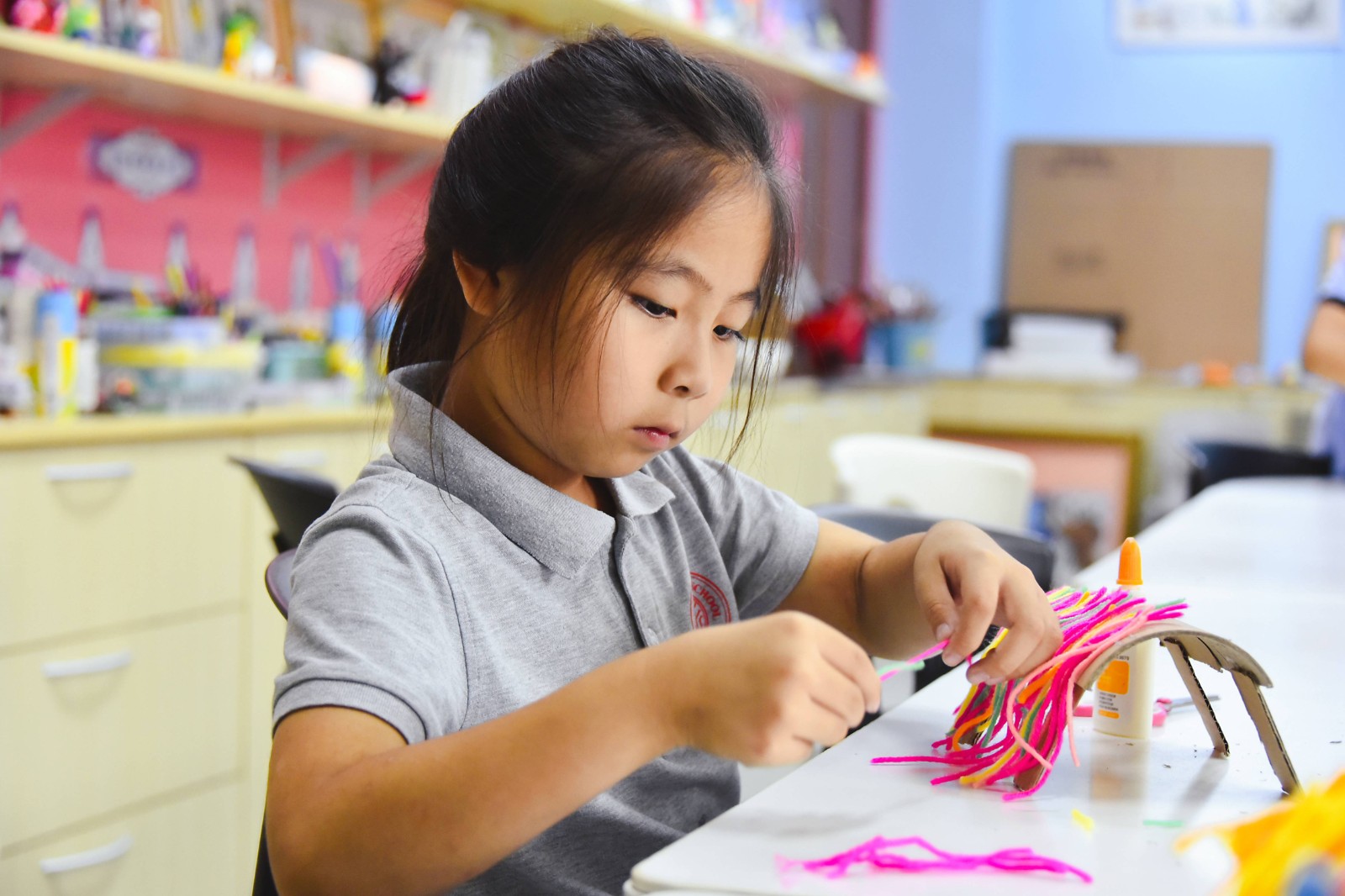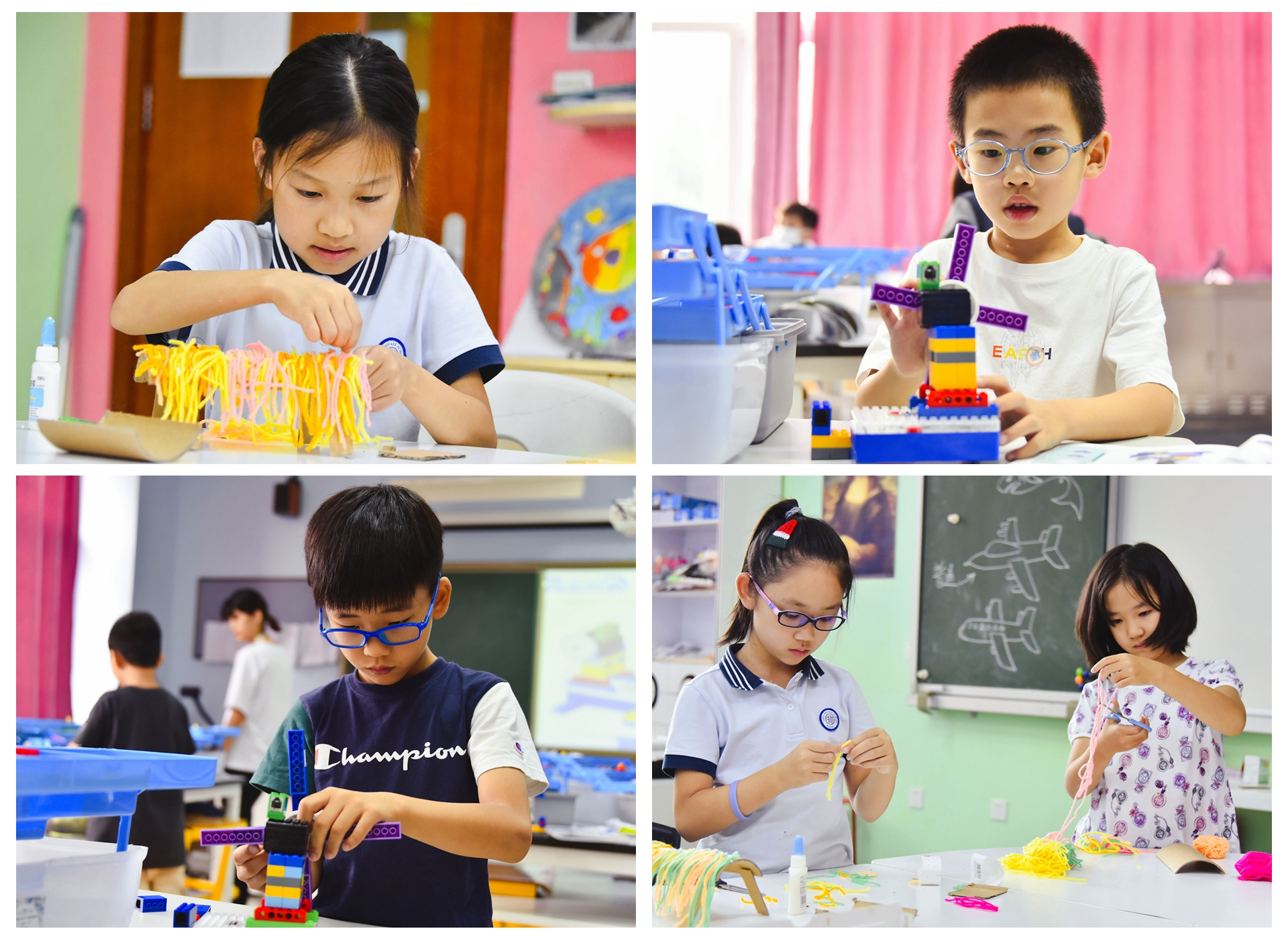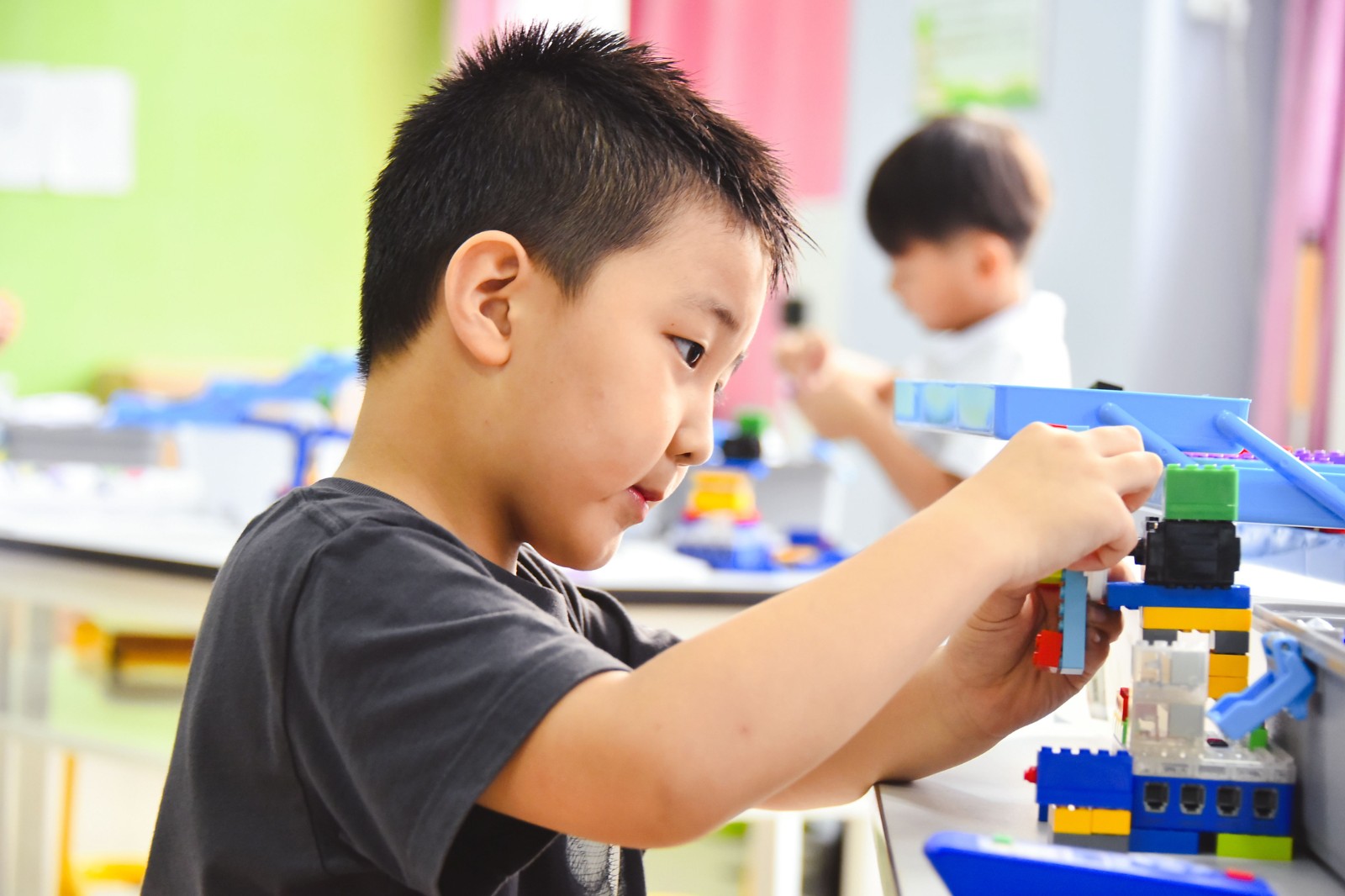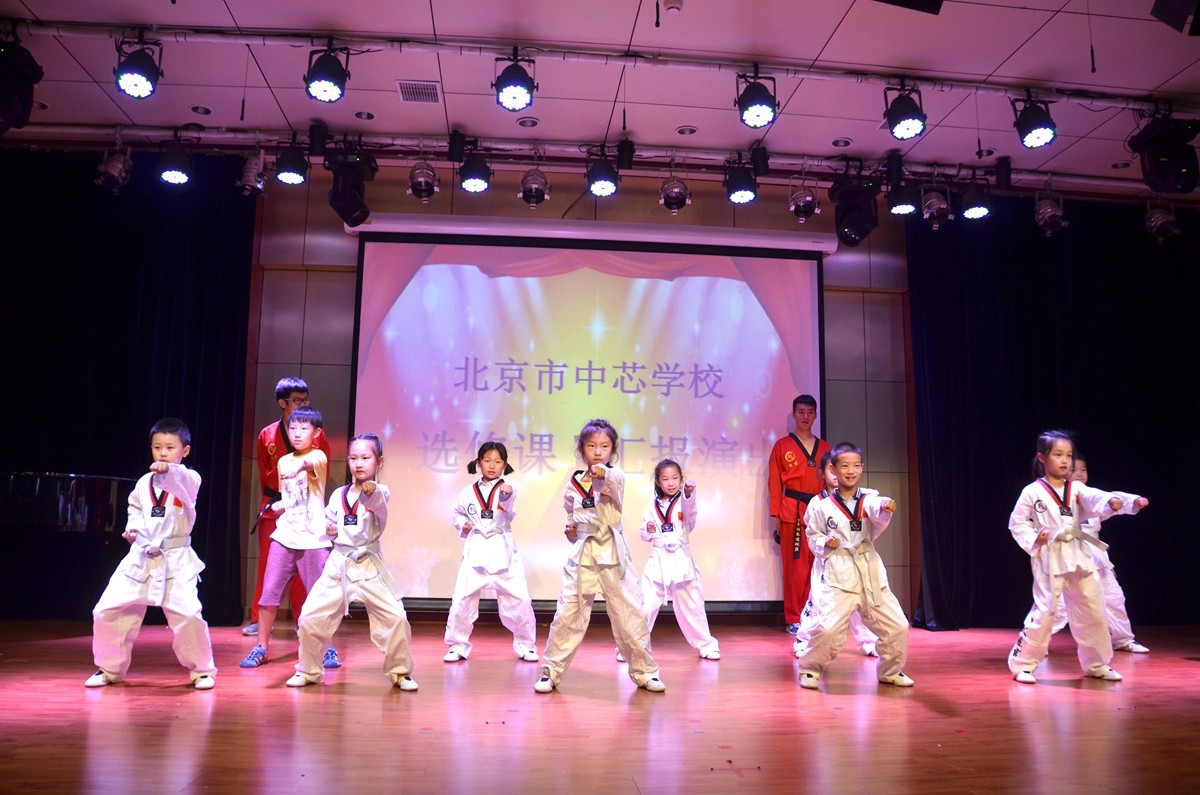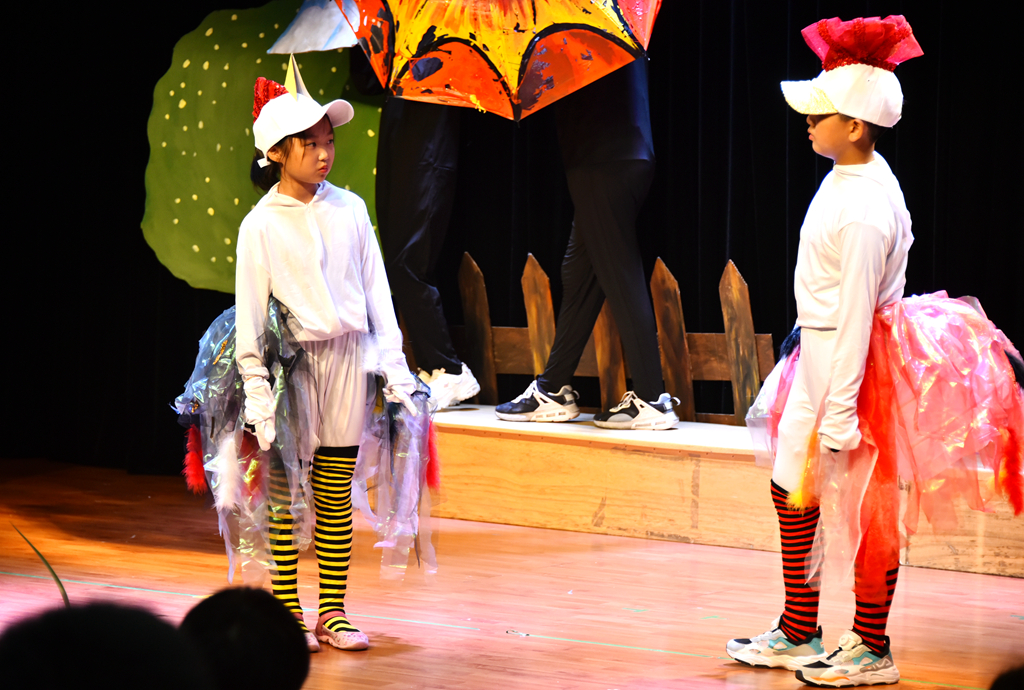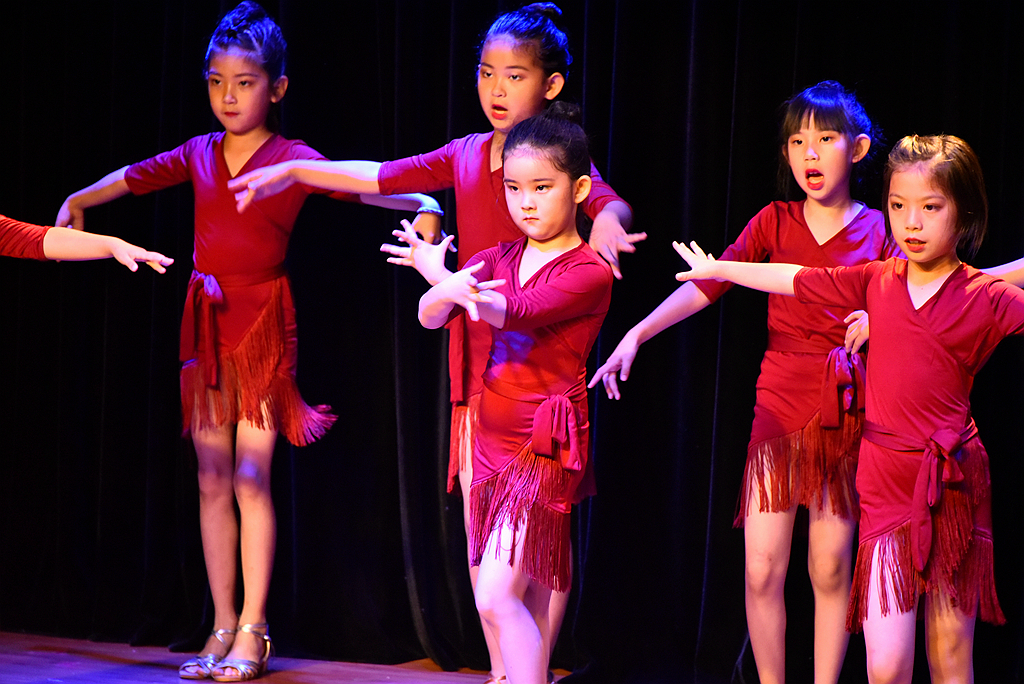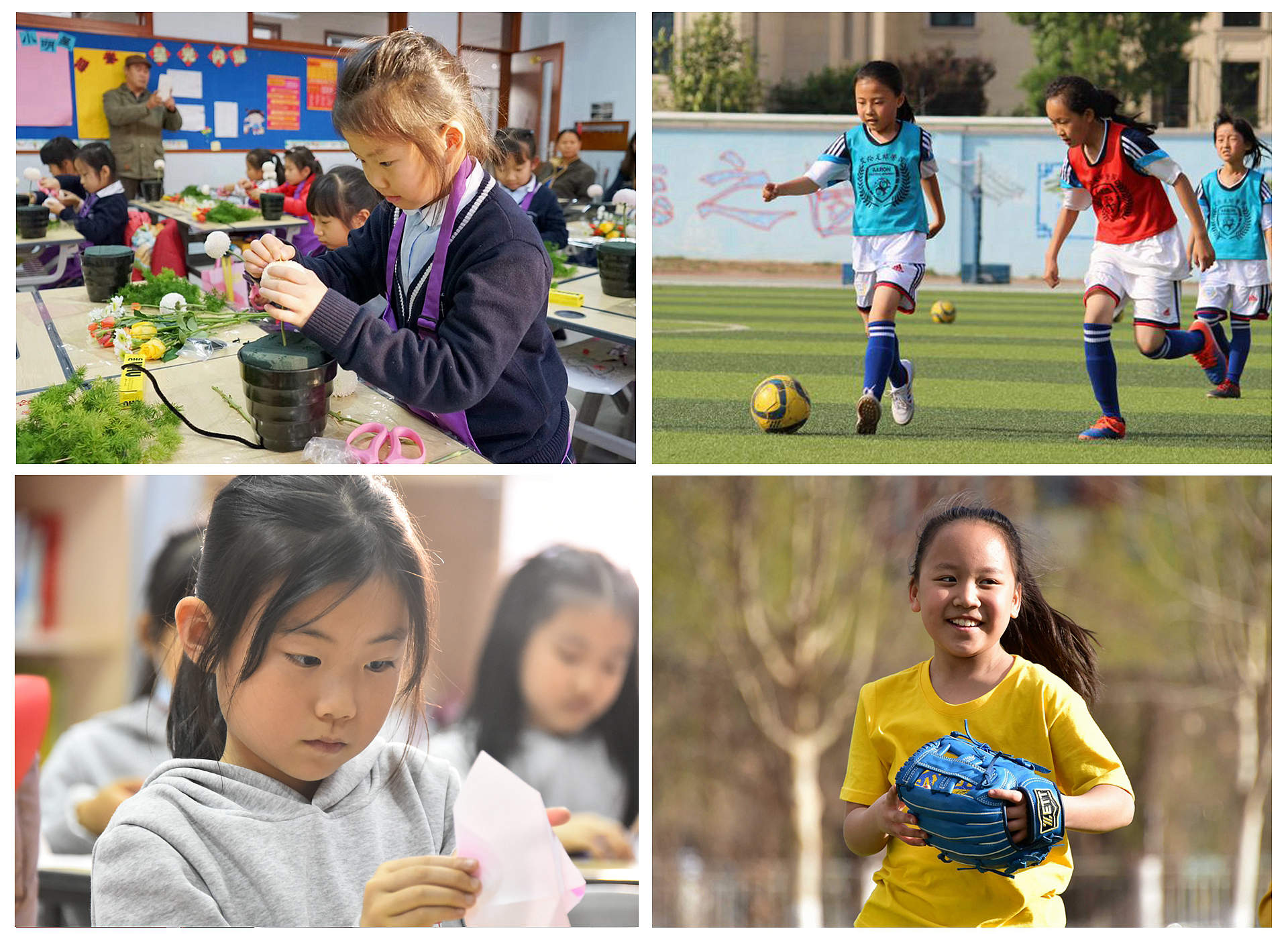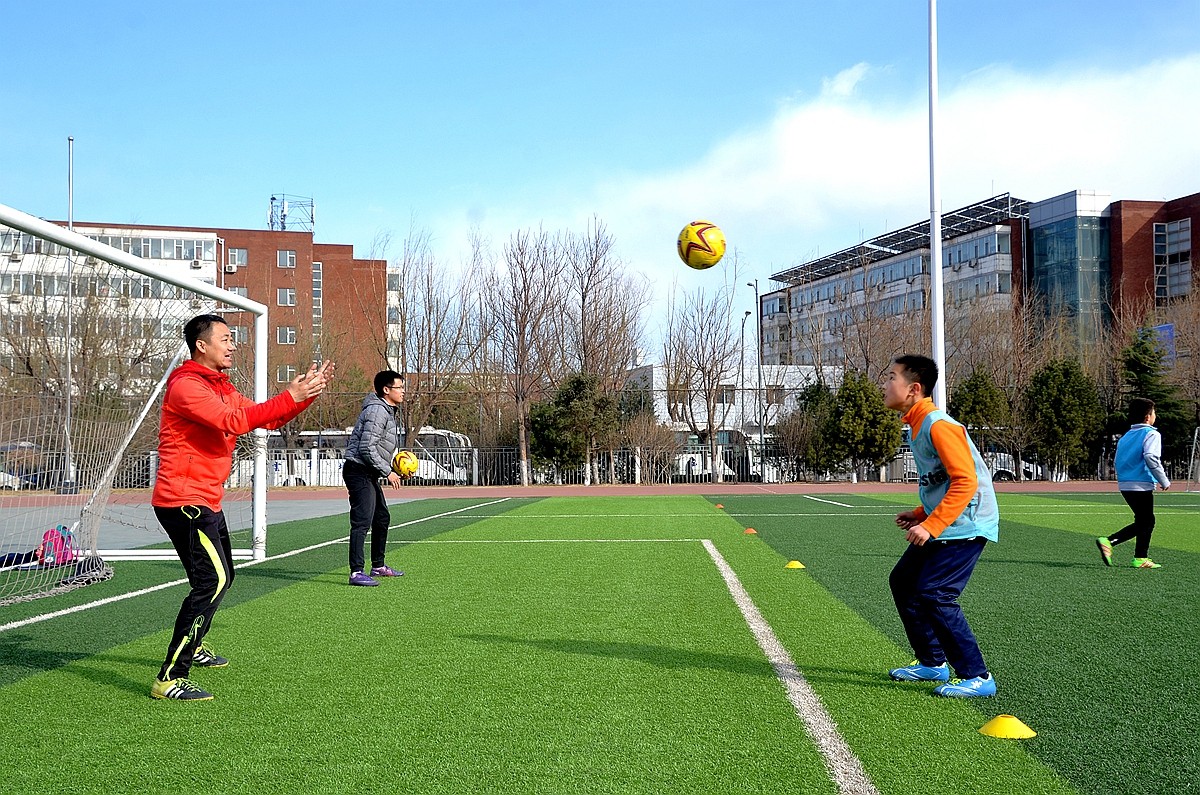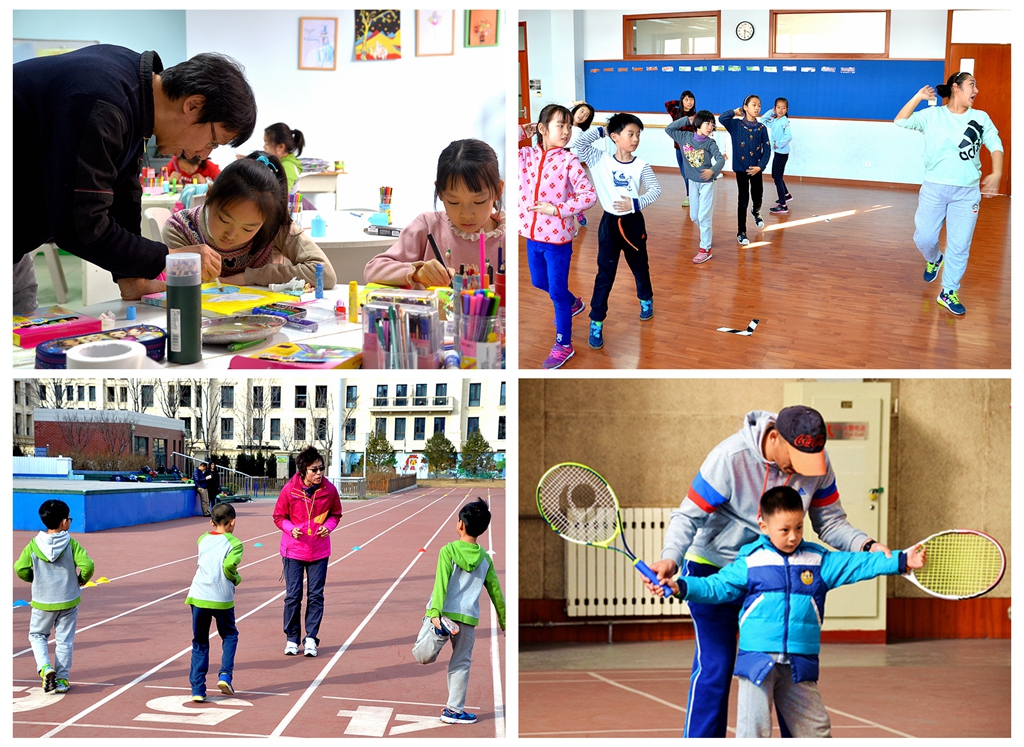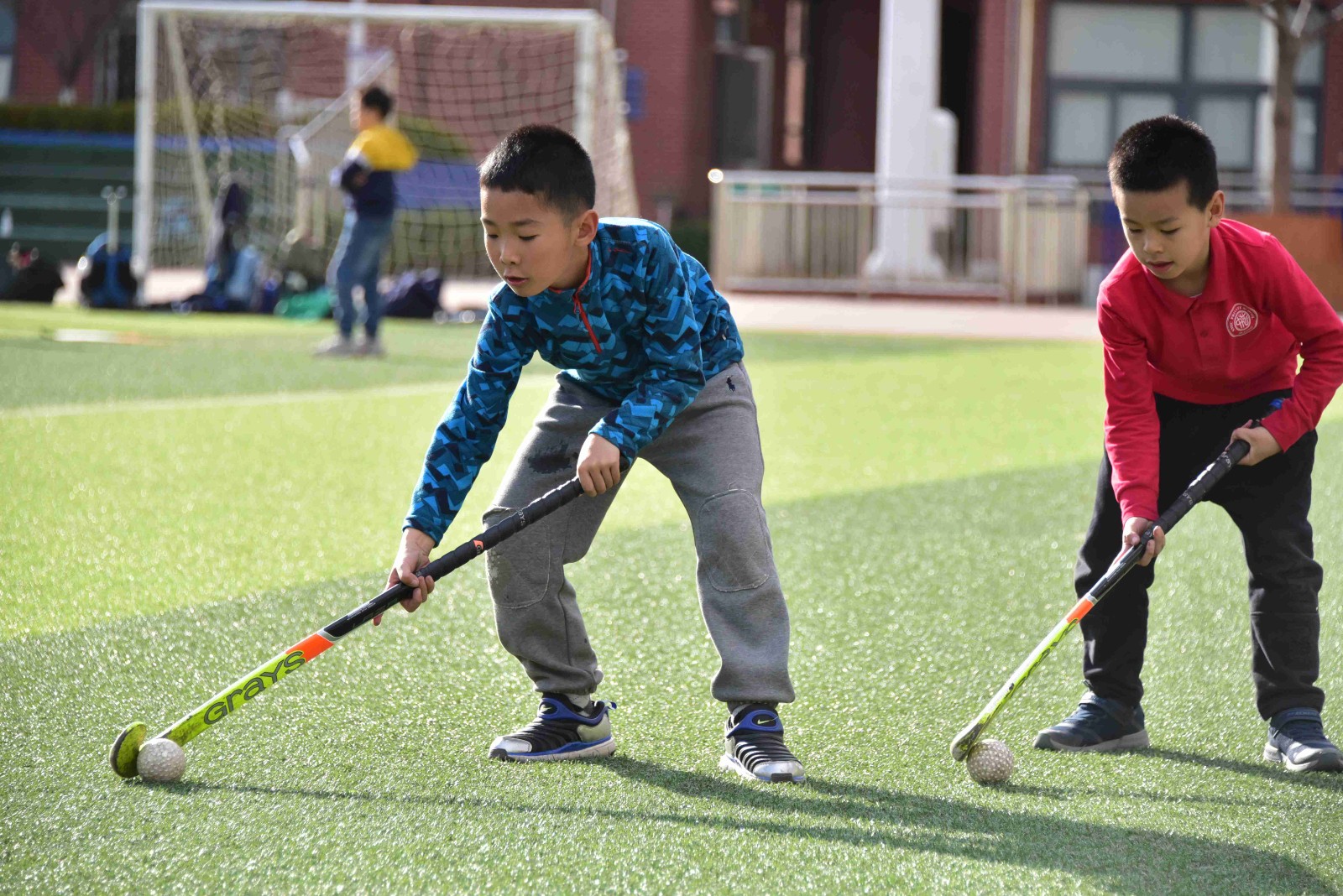According to the school's educational objectives and teaching philosophy, the elementary school has built its own unique curriculum system based on the cultivation of six basic key abilities and six growth key abilities of students, and formed the SMIC special curriculum based on the "Happy Learning Classroom", which includes four blocks of teaching contents: basic curriculum, extension curriculum, research curriculum and growth curriculum.
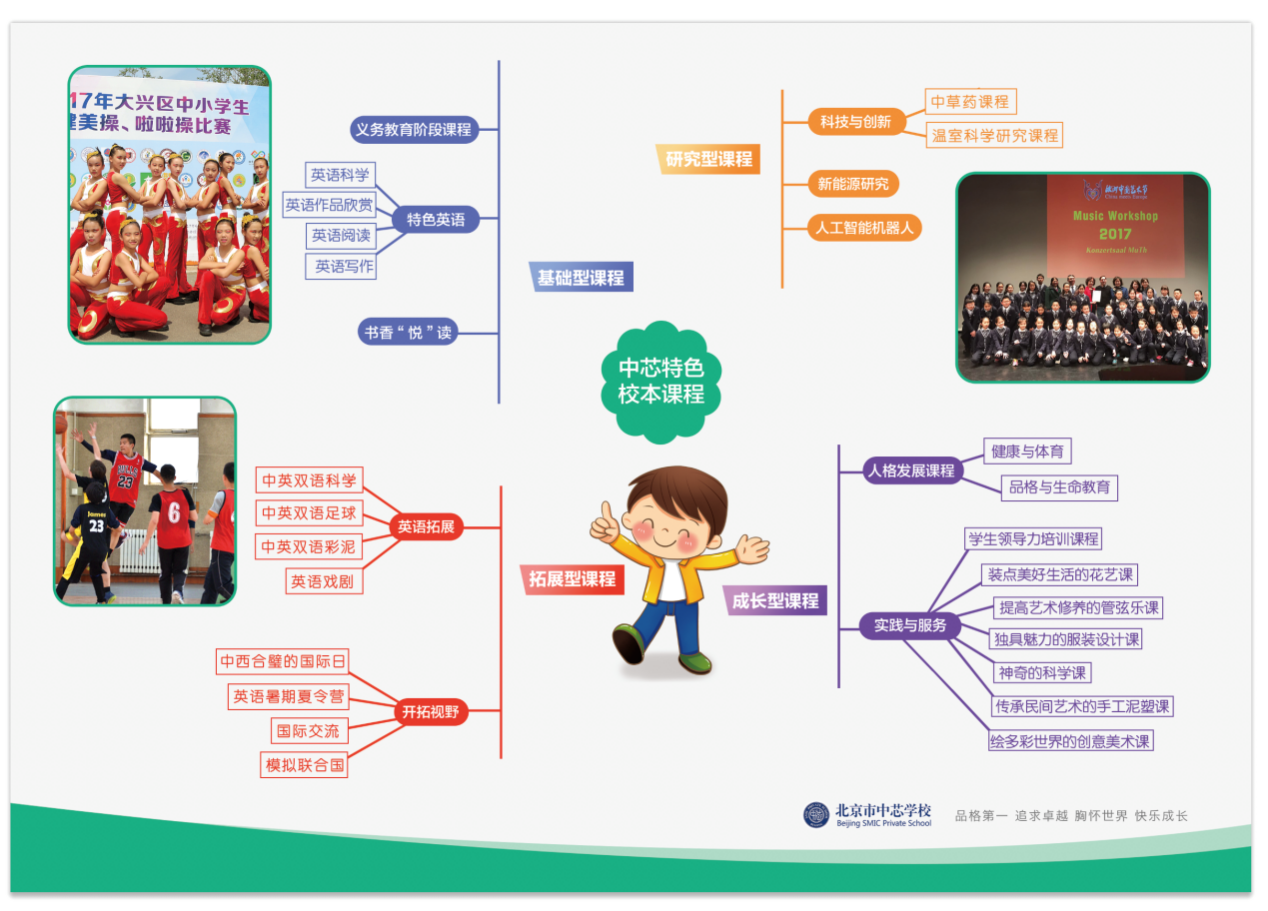
Basic Curriculum
Precise objectives, Grasp the Foundation, The Combination of East and West, Diversified Integration
(1)Compulsory education curriculum. In accordance with national regulations, the curriculum is offered in full at the compulsory education level, and full class time is offered.
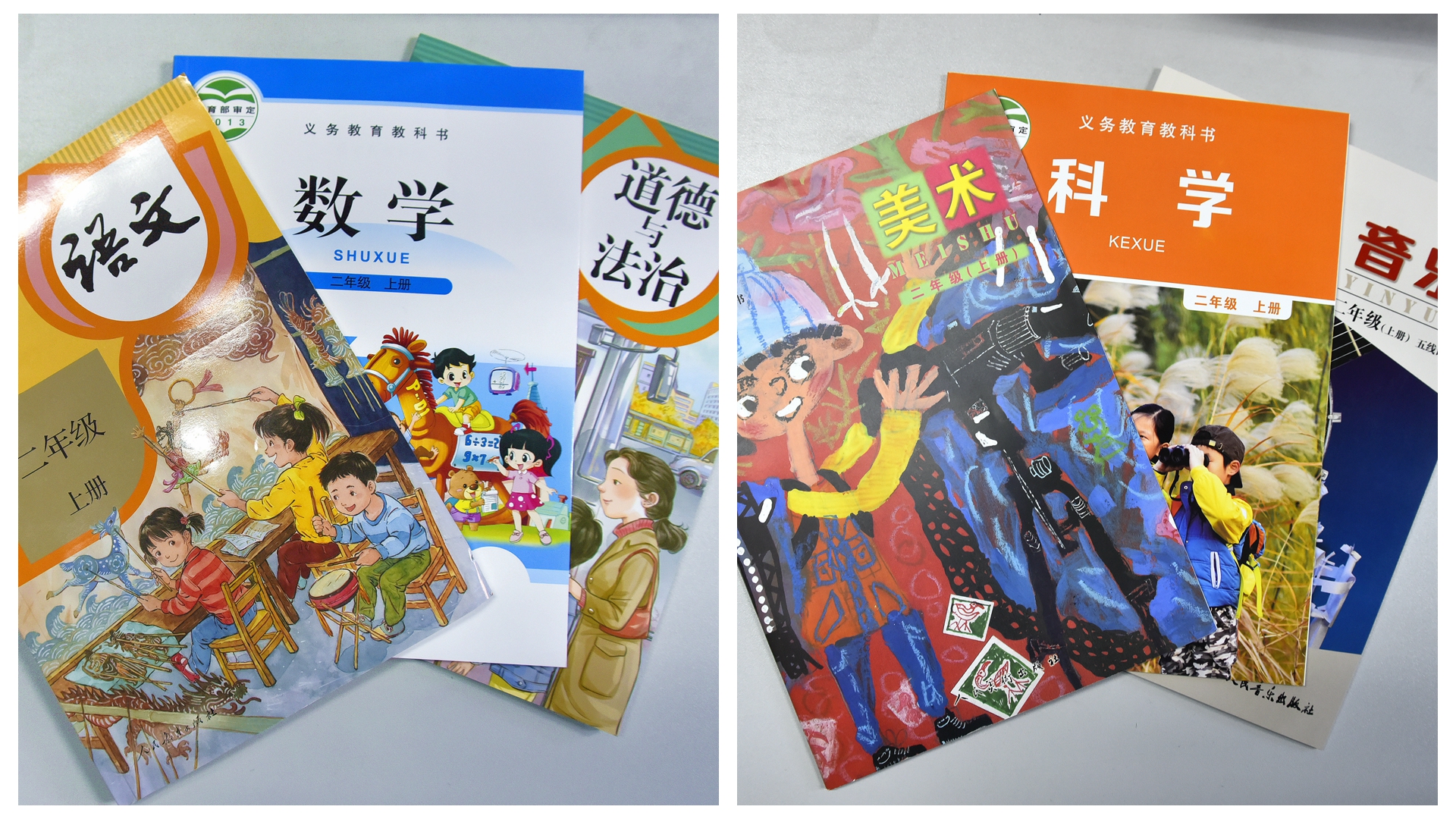
(2)Special English. Covering English Science, English Works Appreciation, English Reading and English Writing courses, children develop independent learning habits, independent thinking, problem solving and critical thinking skills through thematic inquiry and cooperative learning in an immersive English environment.
In addition to the special classes, there are also a variety of after-school activities. For example, "Model United Nations", "English Debate" and "English Speech" in the upper grades; "Drama Performance", "English Song Show" and "Word Spelling Contest" in the lower and middle grades. In the lower and middle grades, there are drama performances, English song demonstrations, and word spelling contests, so that children can express themselves with confidence and show their full potential. By the time students graduate from elementary school, their English proficiency and literary literacy can reach the graduation level of middle school students in ordinary public schools.



(3)Happy Reader. Since 2013, we have been implementing the “Happy Reader" program and have established four reading degree levels: "Bookish Person," "Bookish Bachelor," "Bookish Master," and "Bookish Doctor. "The school also organizes five to eight book defense activities every semester. The school also promotes reading activities to families, forming a strong reading atmosphere inside and outside the school, allowing children to taste the joy of reading, stimulating the interest in reading, and truly reading more and reading better.
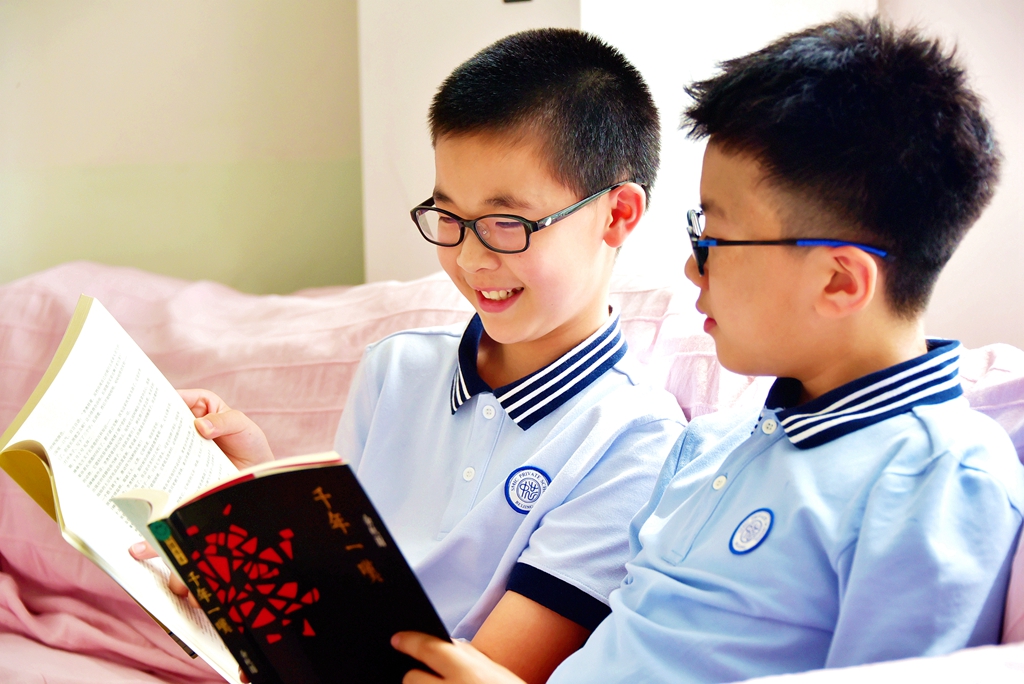
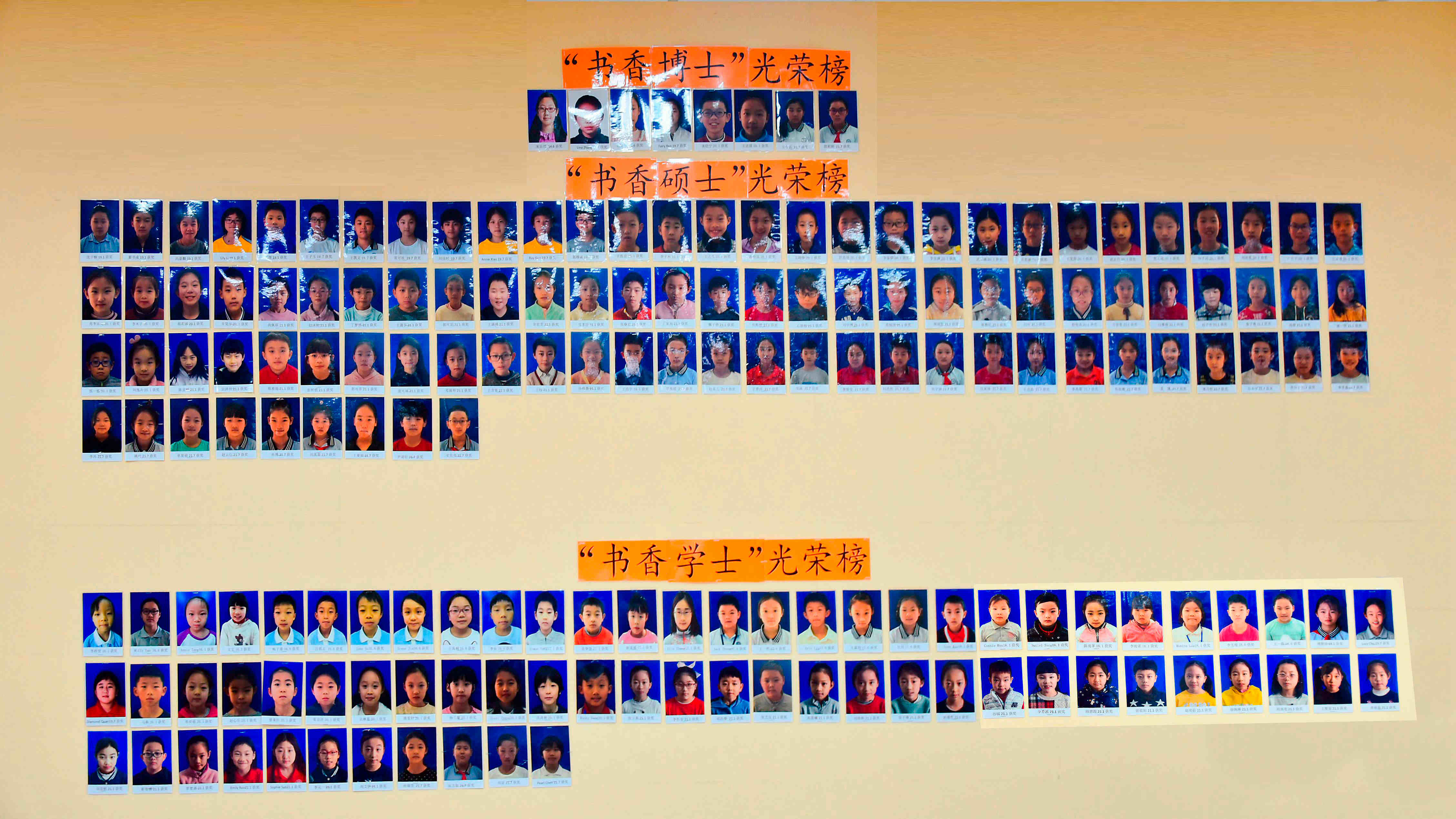
Extension Curriculum
Macro View, Independent Review, Ability Extension, Lifelong Learning
(1)English Language Subjects Expanded. In English language learning, the bilingual language environment is reflected in various subjects such as science, physical education, crafts and drama, and students' English application skills are enhanced.
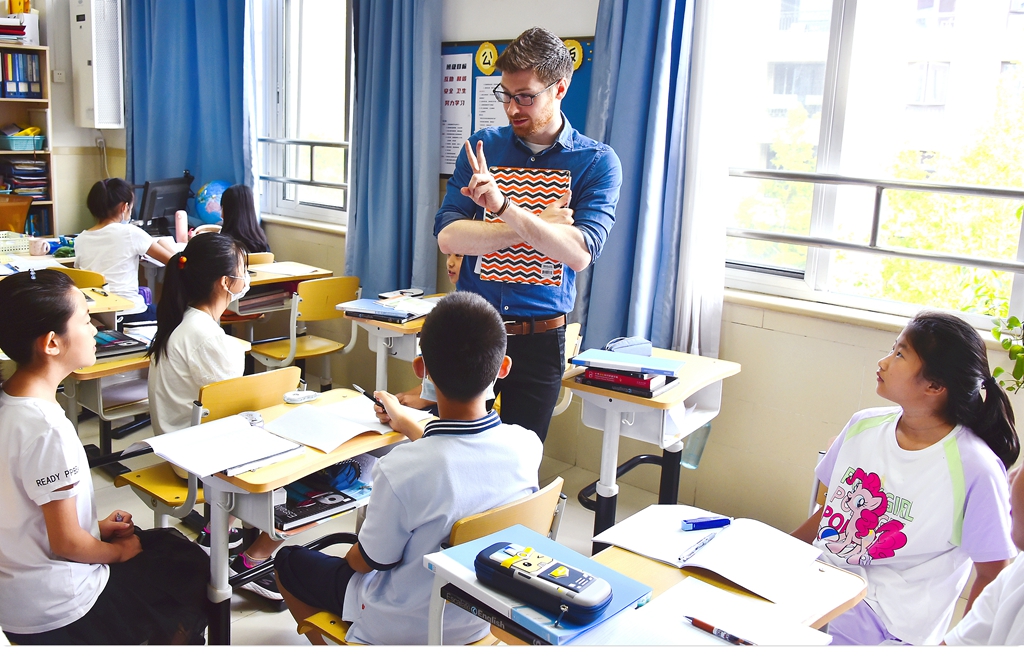
(2)International mind expansion. The school develops the international perspective of students in various large-scale activities inside and outside the school, and cultivates the thinking and insight of children in a diversified cultural atmosphere.




Research-based Courses
SMIC Innovative, Breakthrough, Global Mind, Win-win Cooperation
(1)Innovative Science Curriculum. In the school's special science program, teachers lead the children in understanding and growing various common herbal plants and herbal tools, making botanical specimens, incense pouches and simple medicinal meals. The school has also teamed up with a professional international horticultural organization to create a "Mini Plant Tribe".
The Sunshine Greenhouse has hundreds of different species of plants outdoors and three miniature biological environments created indoors - "Tropical Desert Biological Environment" "Forest Biological Environment" and "Wetland Biological Environment". The students observed and explored in the greenhouse, fully reflecting the student-centered STEAM integration curriculum and PBL project-based teaching.
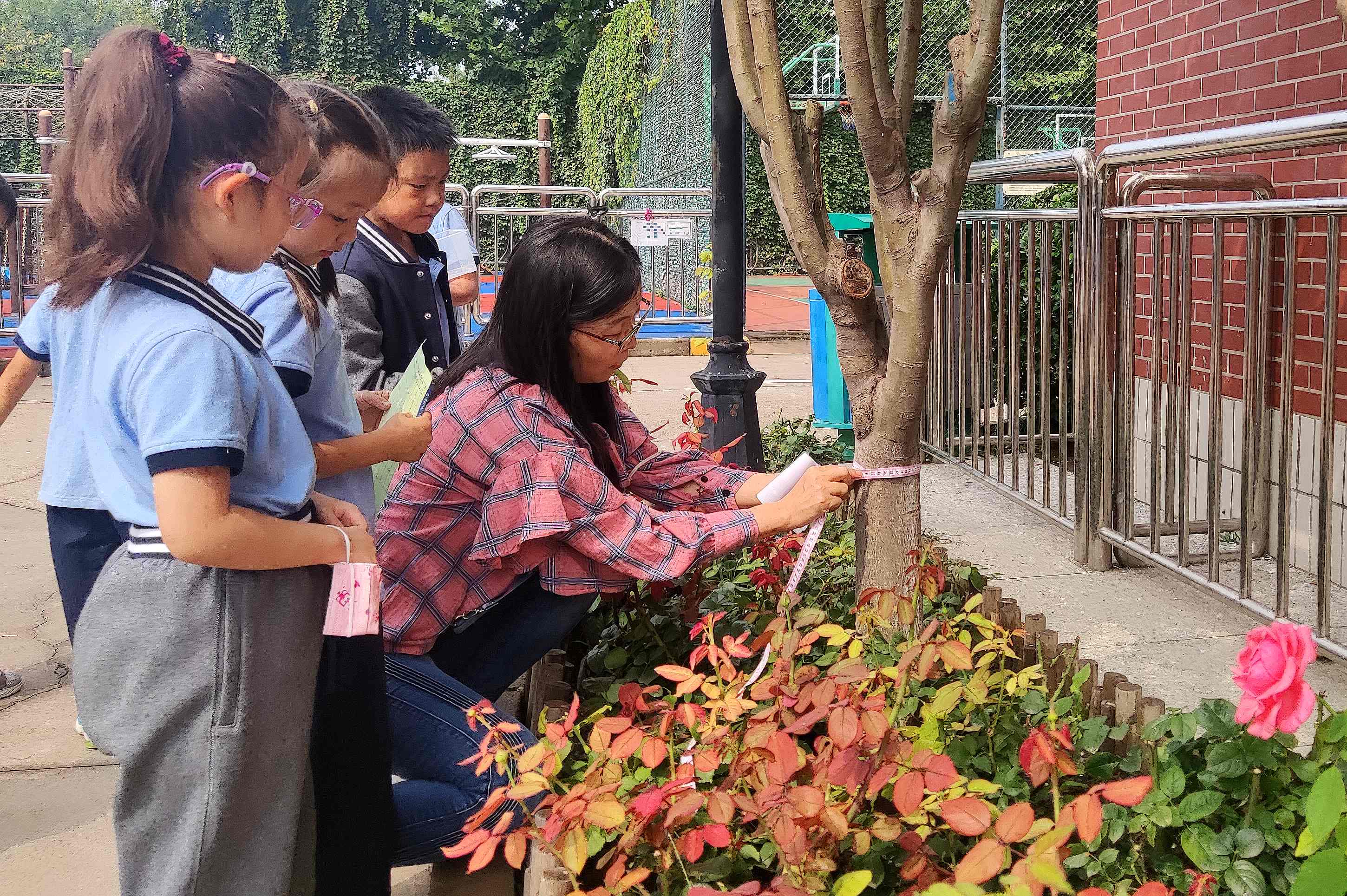
(2)New Energy Research Curriculum. In September 2014, the school science team set up the "New Energy Science Curriculum Development and Laboratory Construction" project, and in 2015, the school signed an agreement with Goldwind Science and Technology to build a new energy laboratory for research and experiments on new energy projects in primary and secondary schools.

(3)Artificial
Intelligence Robotics. In order to keep pace with the rapid development of
science and technology, schools offer artificial intelligence robotics courses.
With the help of robot carriers to deepen students' understanding and
application of knowledge of computers, electricity, mechanics, mechanical
principles, mathematical thinking, etc., more thinking innovation and hands-on
skills. Let the children learn newer knowledge and find more fun in the world
of robotics so that they can show their talents and express their
creativity.
Growth-oriented Courses
Nourishing Lives, Nurturing Personalities, Balanced Development and Challenging Potential
(1)Character Development Program. Under the concept of "character first", the school not only cultivates children's excellent character, but also emphasizes teachers' and parents' teaching by example to be the role models of children's lives. In the "Health and Physical Education" curriculum, not only do we teach basic health knowledge and exercise children's physical fitness, but we also integrate character into the physical education curriculum, making it a "Character Sports" program with the characteristics of SMIC. In addition, character education is led by monthly character theme learning, and is mainly carried out in class meetings, life education classes, and morality and rule of law classes, and permeated in daily subject teaching and various activities. The life education curriculum is based on the four themes of "man and self," "man and man," "man and the environment" and "man and life. It is conducted in the form of core curriculum, subject infiltration curriculum, school activities, and life education classes for parents, leading children to know, appreciate, cherish, and respect life, and helping children learn to love themselves, others, and life in the project learning, thus showing quality life force.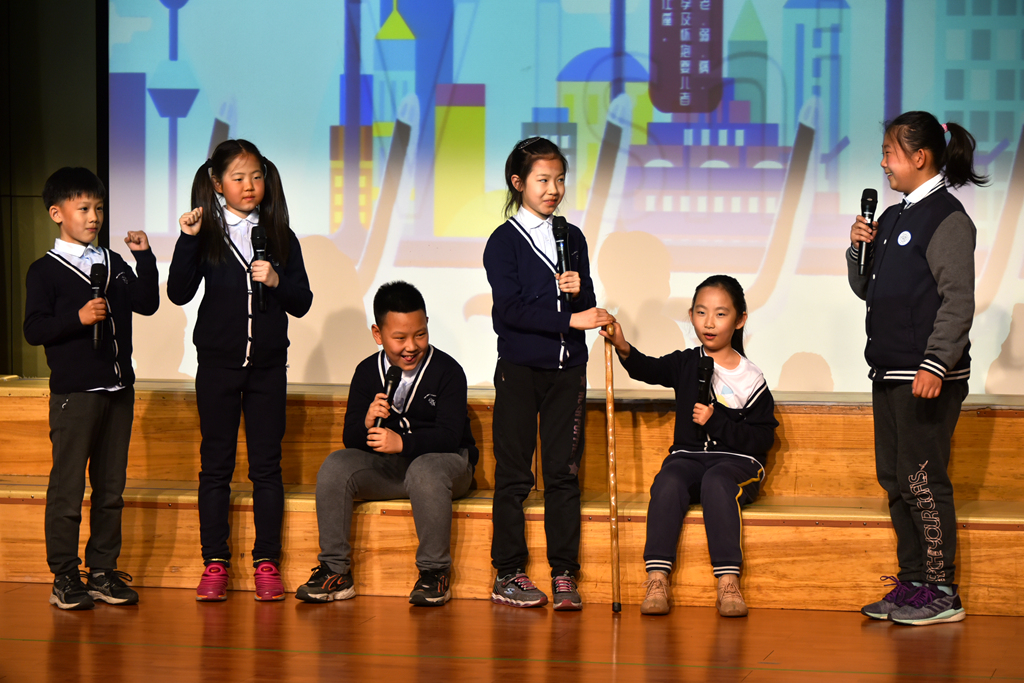
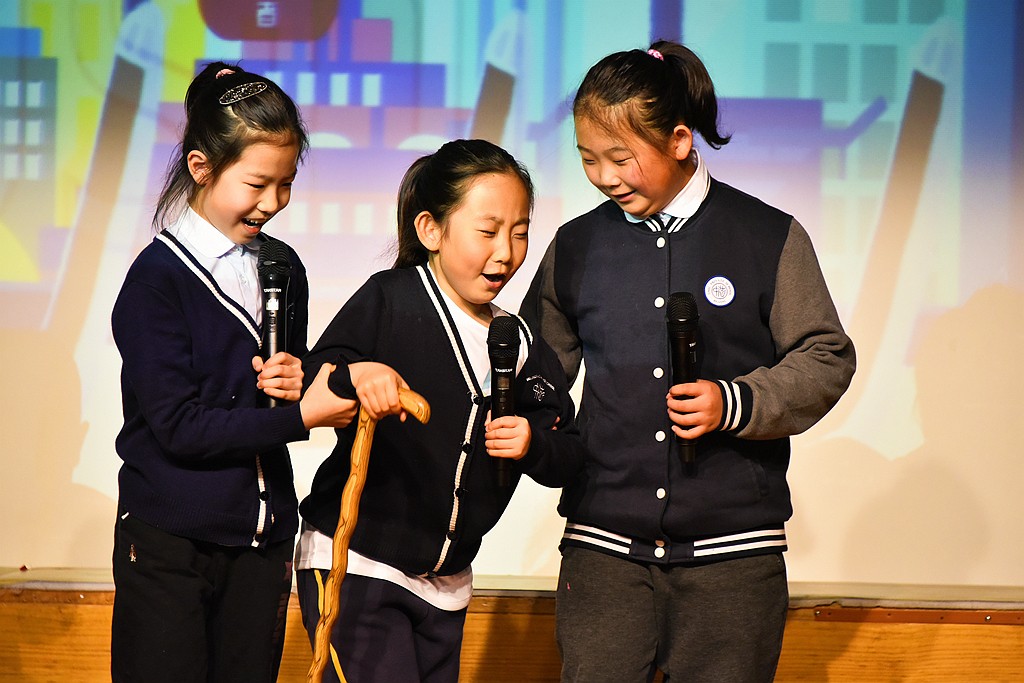
(2)Practice and Service. The school focuses on the exercise of students' practical skills and provides students with more than 130 after-school electives in six categories to cultivate leadership, learn to recognize and appreciate beauty, and improve their sense of social responsibility and service in practice.
